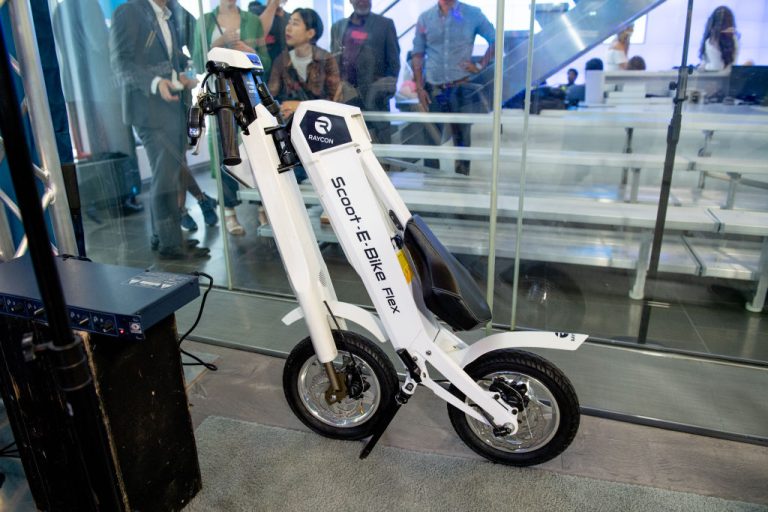New Yorkers pondering whether or not to purchase an electric bike (e-bike) or scooter may finally make up their minds should a proposed e-bike incentive, tabled by State Senator Julia Salazar, be signed into law by New York’s Governor.
The proposed new incentive would provide New Yorkers who buy an e-bike or scooter with a rebate of up to $1,100 per bike, cutting the cost of a new bike in half for many consumers.
The incentive is capped at $1,100, meaning any e-bike over $2,200 would still only qualify for a rebate of $1,100.
The proposal, a single paragraph, would create the “Ride Clean” rebate which was modelled after the state’s Drive Clean program for electric cars. It was just two years ago that NYC legalized e-bikes in the city.
The extremely short bill fails to provide much detail, but so far it has been interpreted as having no restrictions on area of residence or income level. E-bikes eligible for the rebate include class 1, 2, and 3 electric bikes that can reach up to 28 mph with up to 750 watts or 1 hp of power.
Success
You are now signed up for our newsletter
Success
Check your email to complete sign up
Electric scooters are also eligible for the rebate, however no speed or power restrictions are noted for scooters. It remains unclear whether or not the incentive applies to standing electric scooters or Vespa-style seated electric scooters.
The proposed rebate follows a national e-bike credit being scrapped from the climate-focused policies included in the Biden Administration’s Inflation Reduction Act.
Salazar, a state senator from Brooklyn, said, “When the federal government falls short it really does fall on the state to step up and take responsibility,” StreetsBlog reported.
Salazar’s proposal is significantly better than what was originally proposed in the Inflation Reduction Act, which earmarked a $900 incentive per e-bike — still a sizable rebate for a bike that could easily cost upwards of $3000.
So far, Vermont is the only state to offer a state-level purchase incentive for electric bikes and it looks as though New York will be the second.
The bill’s sponsor, Robert Carroll, said he was “very optimistic” that the Ride Clean proposal will pass in the coming season, which begins in January.
Noel Hidalgo, one of Salazar’s constituents, told New York’s StreetsBlog, that he switched to an electric cargo bike around ten years ago, and hasn’t looked back.
“With my van, I was able to move a lot of stuff. With motorcycles, I was able to seemingly move very little,” he said, adding that after experiencing the cargo e-bike Salazar’s bill was a “no-brainer.”
The choice may be the right one for many New Yorkers. Federal data, updated in February of this year, indicates that more than half of New Yorkers’ trips are under five miles, making an e-bike a reasonable mode of transportation to make the trip.
For environmentalists the choice to make the switch from a traditional vehicle to an e-bike may be an easy one.
According to a survey, published last year, by think tank TNMT, e-bikes and scooters emit approximately 20 grams of CO2 per person per kilometre over the bikes or scooters lifetime, compared to an electric car which emits about 100 grams per kilometre and much less than a typical gasoline driven vehicle which emits more than 200 grams per kilometre over the course of its life.
Proposals like Salazar’s have seen success in other jurisdictions, particularly in Europe. In France for instance, the government offers up to €4,000 to people who trade in their cars for bikes and some U.S. cities are testing out incentives of their own.
A program in Denver was so popular that Colorado officials recently announced a statewide version of it, mere months after Denver launched the program and Vermont recently approved an e-bike credit of up to $400.















